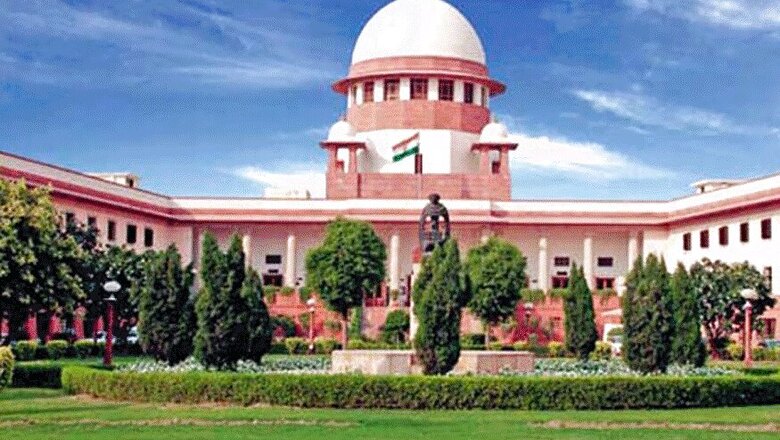
views
New Delhi: The Supreme Court on Friday favoured definite timelines for making appointments of judges a time-bound process, and said that enormous delay in appointment of judges belies the hope and trust of the litigants.
At a time when one-third of the total posts of high court judges are vacant, a bench of Justices AK Sikri and Ashok Bhushan expressed regret over the inordinate delays at the levels of the high court collegium and then by the executive in processing the appointments while urging the stakeholders to rectify the situation.
“Enormous delay in appointment of Judges of the high courts not only frustrate the purpose and object for which Article 224(1) was brought into the Constitution but belies the hope and trust of litigants who come to the high courts seeking justice and early disposal of their cases,” said the Court.
The bench cited its 1993-Constitution Bench judgment in Supreme Court Advocates-¬on-¬Record Association and Others Vs Union of India wherein the apex court maintained that the process of appointment must be initiated at least one month prior to the date of an anticipated vacancy.
“It was done to achieve an ideal situation, namely, to ensure that the post is filled up immediately after the occurrence of the vacancy so that no time is lost. Unfortunately, it still remains a far cry,” it lamented.
The Court noticed that in the first instance, names are not forwarded by the High Court for months even after the vacancy has arisen.
“It is also seen that once the names are forwarded, they remain pending at the Executive level for an undue long time before they are sent to the Collegium of the Supreme Court for approval along with the inputs of the Executive. Even after the clearance of the names by the Collegium, these remain pending at the level of the Executive,” said the bench, mentioning how the government also sits on the names for various reasons.
The Court said that there have been instances when the entire process takes more than a year to complete after the names have been forwarded to the government by the Collegium.
“All this results in inordinate delay…It is, therefore, in the interest of all the stakeholders, including the judiciary, that definite timelines are drawn for each stage of the process so that process of appointment is accomplished within a time-bound manner,” it held. The Court stated that all this leads to unpleasant situations which can be avoided.
“We need not say more. It is more so, to keep hope and aspiration of litigants alive and to fulfil the commitment of providing a speedy justice, the process of appointment of Judges of the High Court needs more expedition at the hands of all who have to discharge the constitutional obligation entrusted by the Constitution of India,” it added.
The Court said this while upholding the appointment of two Additional Judges in the Rajasthan High Court, whose appointments were challenged by advocate Sunil Samdaria.
Samdaria had contended that the appointments ought to be quashed because they were appointed after they had retired as judicial officers and further their appointments could not have been made for less than two years under Article 224.
The bench relied upon a Constitution Bench judgment in SP Gupta case to hold that the tenure of appointment of Additional Judges who have less than two years to retire is not contrary to Article 224.
About Samdaria’s argument on their retirement, the Court said that the requirement under Article 224 for appointment as an Additional Judge was that a person has for at least 10 years held a judicial office.
“Use of word 'held' in this Article does not indicate that qualification is also meant that apart from holding 10 years a judicial office, the incumbent should also be holding the judicial office at the time notification under Article 224 is issued,” ruled the bench.


















Comments
0 comment